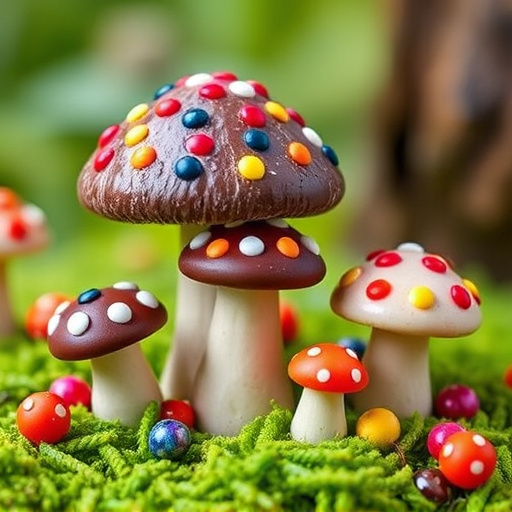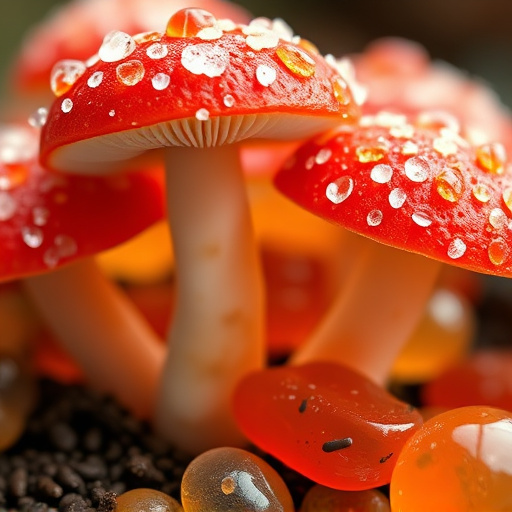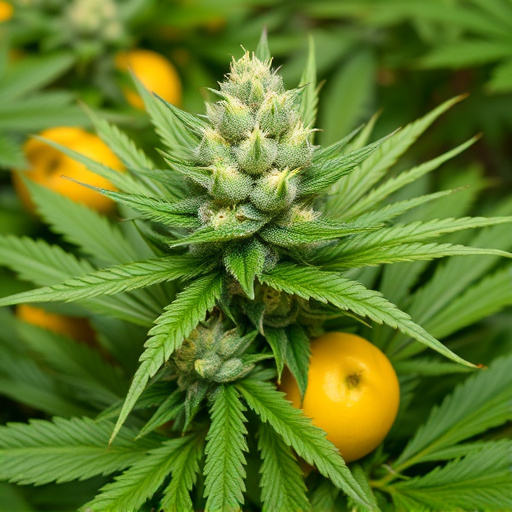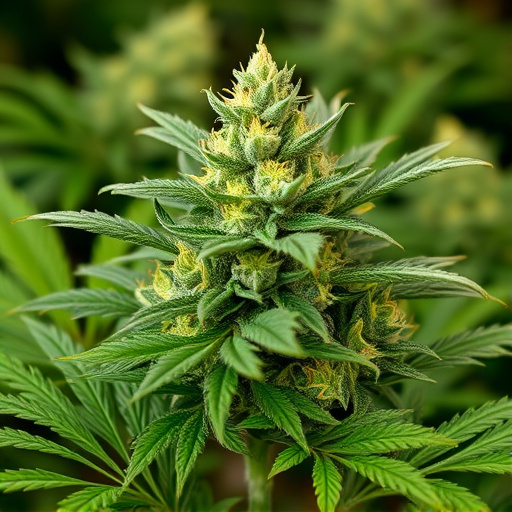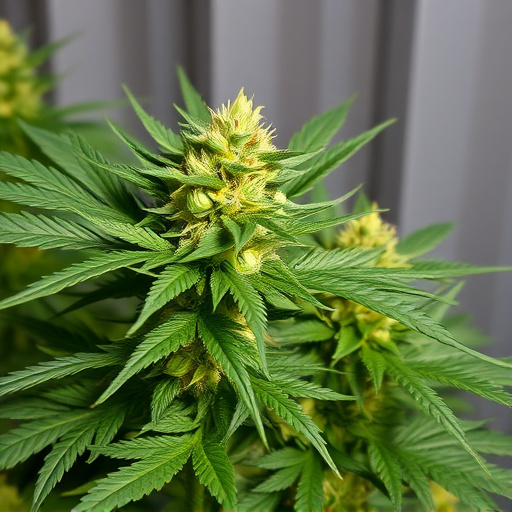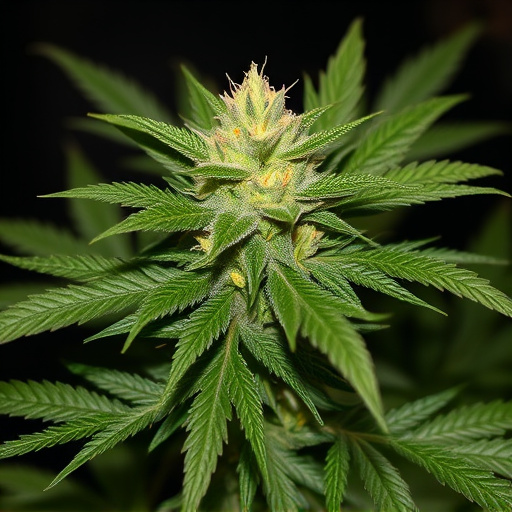Lemon cannabis strains, popular for their aroma and unique chemical composition, primarily interact with the brain's reward system through dopamine and serotonin receptors. The key compound THC stimulates dopamine, leading to pleasure and euphoria, while limonene, a terpene, enhances serotonin levels, improving mood. Regular consumption can influence neurotransmitter balance, offering therapeutic potential for mental health but also risks of dependency. Further research is needed to fully understand the long-term effects of lemon cannabis strains on serotonin systems.
Cannabis has long been known for its impact on the brain’s reward system, with effects tied to dopamine. This article delves into the complex relationship between cannabis and two key neurotransmitters: dopamine and serotonin. We explore “Cannabis and the Brain’s Reward System: Understanding Dopamine” to demystify how the plant interacts with our reward mechanisms. Further, we examine “The Role of Serotonin in Mood Regulation and Cannabis Consumption,” highlighting its significance in mental health. Finally, we discuss the potential benefits and effects of lemon cannabis strains, known for their unique composition, on these neurotransmitters.
- Cannabis and the Brain's Reward System: Understanding Dopamine
- The Role of Serotonin in Mood Regulation and Cannabis Consumption
- Lemon Cannabis Strains: Potential Benefits and Effects on Neurotransmitters
Cannabis and the Brain's Reward System: Understanding Dopamine
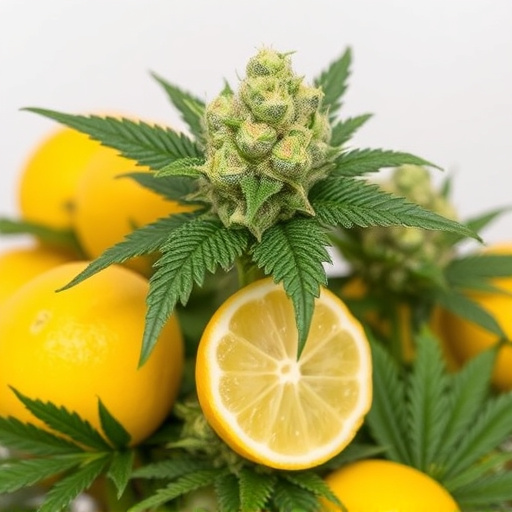
Cannabis and its interaction with the brain’s reward system have been a subject of interest for scientists and researchers. When someone consumes cannabis, whether through smoking or edibles, it stimulates specific receptors in the brain, leading to various effects. One key player in this process is dopamine, a neurotransmitter often associated with pleasure and reward.
Lemon cannabis strains, known for their unique aroma and flavor, contain compounds like THC (tetrahydrocannabinol) that bind to dopamine receptors. This binding triggers a release of dopamine, creating a sense of euphoria and enjoyment. The brain’s reward system is designed to reinforce positive behaviors, and cannabis temporarily enhances this mechanism, making it a powerful psychoactive substance. Understanding these interactions can provide insights into why some individuals may develop a regular use pattern, as well as the potential therapeutic benefits and risks associated with cannabis consumption.
The Role of Serotonin in Mood Regulation and Cannabis Consumption
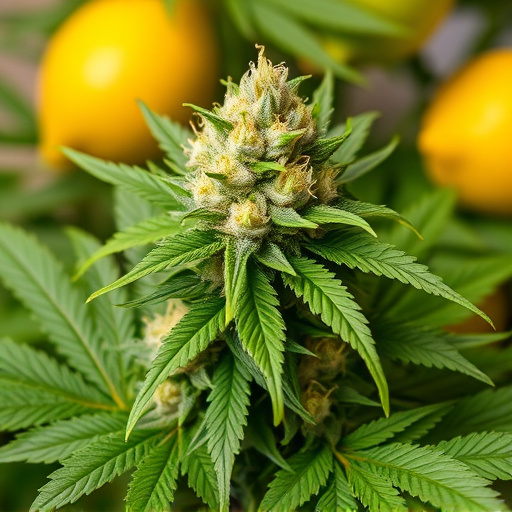
Serotonin, often dubbed the “feel-good” hormone, plays a pivotal role in regulating mood, appetite, and sleep cycles. Imbalances in serotonin levels have been linked to various mental health conditions, including depression and anxiety. Interestingly, cannabis consumption, particularly with specific lemon cannabis strains known for their high THC content, can interact with this intricate system.
When an individual consumes cannabis, THC (tetrahydrocannabinol) binds to serotonin receptors in the brain, potentially altering serotonin’s usual functions. While this interaction may lead to immediate changes in mood and perception, long-term effects are still a subject of ongoing research. Some studies suggest that regular use could disrupt natural serotonin pathways, especially when it comes to mood regulation, highlighting the importance of understanding the intricate relationship between cannabis consumption and mental health, particularly with strains like lemon cannabis varieties that have gained popularity for their potent effects.
Lemon Cannabis Strains: Potential Benefits and Effects on Neurotransmitters
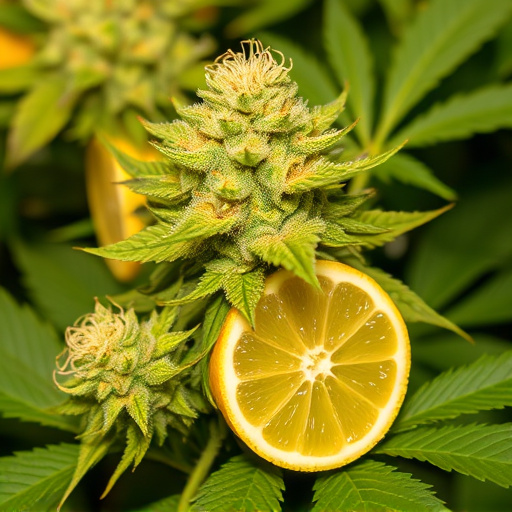
Lemon cannabis strains have gained popularity for their unique aroma and flavor, offering more than just a delightful sensory experience. These strains are known to possess specific chemical profiles that can interact with the brain’s neurotransmitters, including dopamine and serotonin. The key lies in their terpene content, such as limonene, which is responsible for the citrusy scent and has been linked to potential therapeutic benefits.
Limonene has shown promise in enhancing serotonin levels, often associated with improved mood and well-being. By interacting with serotonin receptors, lemon cannabis strains may help alleviate symptoms of anxiety and depression. Additionally, some studies suggest that limonene can stimulate dopamine release, contributing to the strain’s potential effects on motivation and pleasure-related behaviors. This dual action makes lemon strains an intriguing choice for individuals seeking natural ways to support their mental health and overall neurotransmitter balance.
Cannabis’s impact on dopamine and serotonin, key neurotransmitters involved in reward, mood, and emotion, is complex. While regular cannabis consumption can disrupt these systems over time, certain strains, like lemon cannabis varieties, may offer unique benefits. These strains, rich in limonene, have been linked to enhanced mood regulation and reduced anxiety due to their interaction with serotonin receptors. Understanding the specific effects of different cannabis strains, such as lemon cannabis, is crucial for navigating its use responsibly and leveraging its potential therapeutic advantages while mitigating risks.


